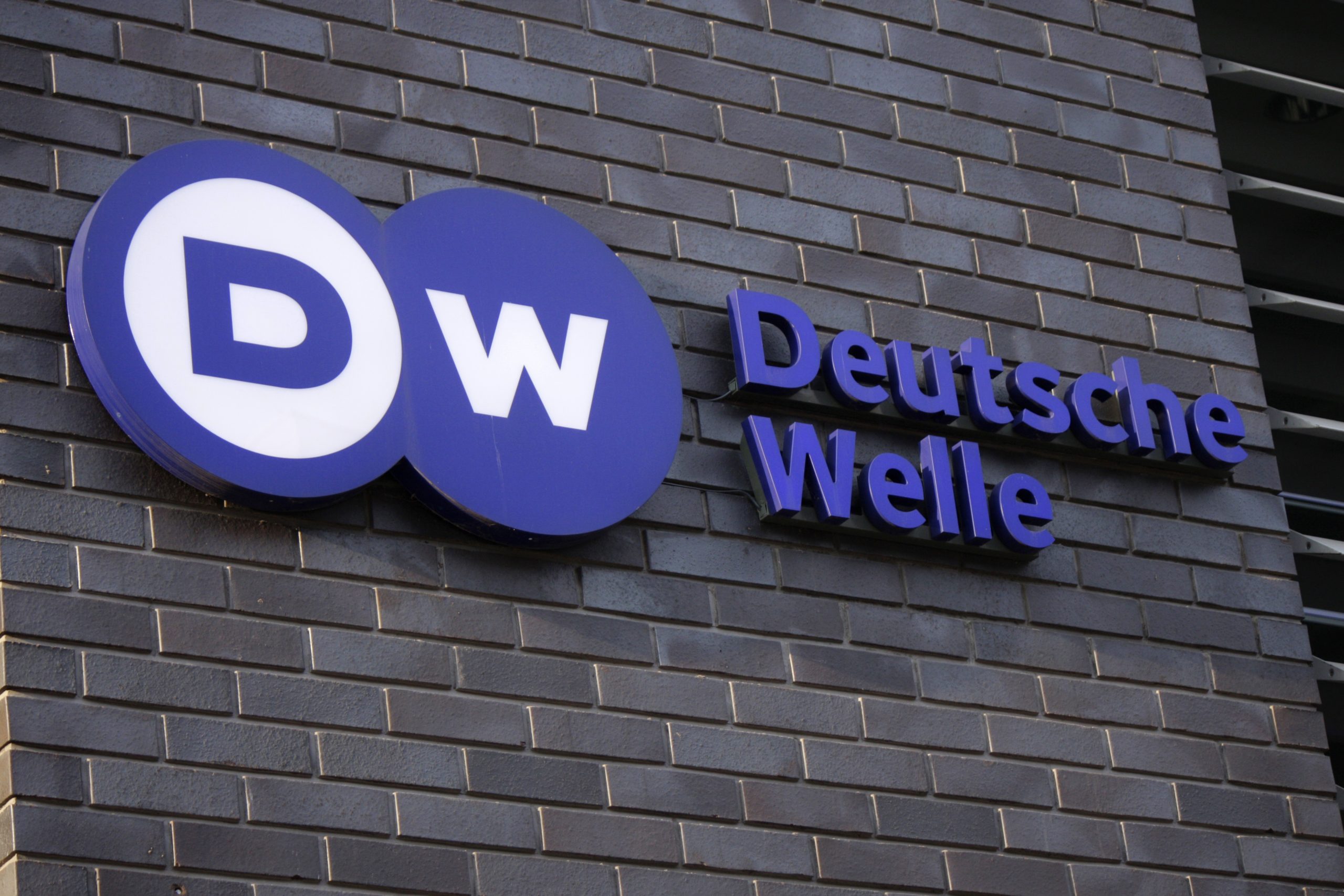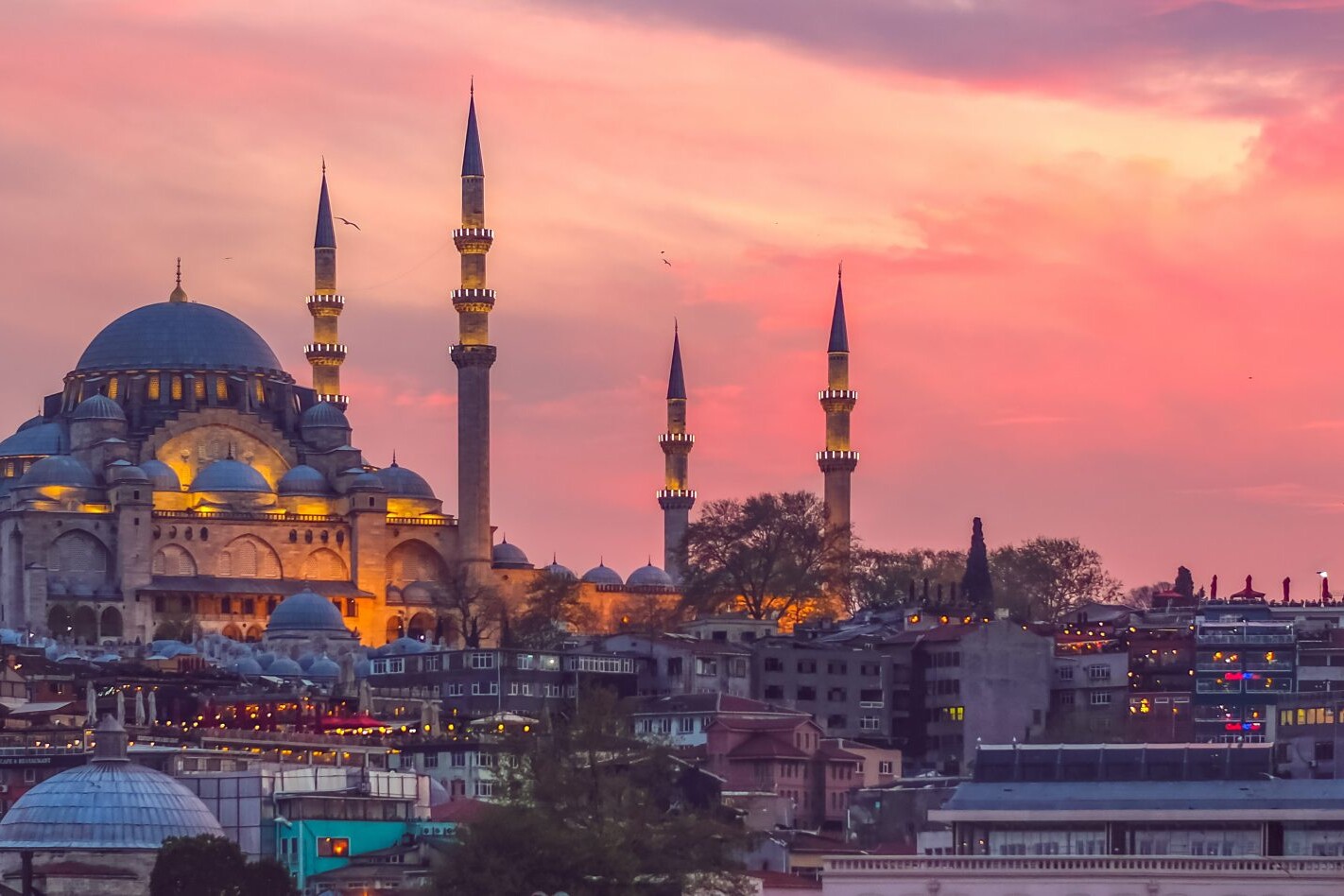Three broadcasters have refused a request by Turkey’s media regulator to apply for an internet broadcasting licence. The move means the authorities could block access to their online news services in the country.
Voice of America (VOA), Deutsche Welle (DW) and Euronews are facing potential bans in Turkey, after they all refused to apply for an internet broadcasting licence.
On 21 February, Turkey’s media regulator, Radyo ve Televizyon Üst Kurulu (RTÜK), posted a 72-hour ultimatum for the Turkish-language news websites of US-based VOA, German-based DW, and France-based Euronews, to apply for an online broadcasting licence. Otherwise they were threatened with having access to their news services blocked in Turkey.
The international news outlets produce on-demand, live Turkish-language news content on their websites for Turkish audiences. In its ultimatum, RTÜK argued that this sort of content production came under its regulation for online, on-demand radio and television services, introduced in 2019. It follows weeks of warnings from RTÜK for the international news outlets to apply for the licence.
According to Reuters, RTÜK’s policy-making board “is dominated by [President] Erdogan’s AK party and its allies” and frequently fines broadcasters that are critical of the government. This is the first time RTÜK has “implemented its powers over international news outlets” since 2019, RTÜK member (and member of the opposition Republic People’s Party) İlhan Taşçı told the International Press Institute.
All three news outlets have refused to apply for the licence. VOA and DW announced that are planning to appeal the directive, maintaining that in acquiring a licence, it would open up their online content to the extensive scrutiny and censorship that local media face for reports that are critical of authorities.
“It gives the Turkish authorities the option to block the entire service based on individual, critical reports unless these reports are deleted.” – Peter Limbourg, Managing Director, Deutsche Welle
In a statement published last week, VOA explained, “Licensing is the norm for radio and TV broadcasting, because broadcast spectrum is a finite public resource, and governments have a recognized responsibility to regulate the spectrum to ensure it is used in the broader public’s interest. The internet, by contrast, is not a limited resource, and the only possible purpose of a licensing requirement for internet distribution is enabling censorship.”
Within the charter of state-owned and federally funded VOA, a “firewall” is stipulated which protects its editorial independence from censorship or interference. DW, similarly state-owned and funded by the German government, also has rigorous measures in place to protect its editorial independence and high standards of journalism.
Read more: The foundations for independent journalism (Deutsche Welle)
DW’s Managing Director, Peter Limbourg expressed concerns about potential censorship. “This move does not relate to formal aspects of broadcasting, but to the journalistic content itself. It gives the Turkish authorities the option to block the entire service based on individual, critical reports unless these reports are deleted. This would open up the possibility of censorship.” He confirmed DW would “appeal against this decision and take legal action in the Turkish courts.”
Meanwhile, The Financial Times received confirmation from Euronews that while it would not apply for a licence, it would comply with RTÜK’s regulations to block access to its English-language videos and live TV feeds for its Turkish audiences.
The scarcity of independent media in Turkey
These developments are hugely consequential for the free flow of impartial, accurate and verified news and information. Turkish authorities have increasingly clamped down on media freedom, independence, and pluralism – values that help to underpin democracy.
According to RSF’s country profile of Turkey, the government controls 90% of the national media. With critical reporting by local media being met with hostility from authorities, Turkey has often earned itself the title as one the world’s worst jailers of journalists. Against this background, “Turks have increasingly resorted to alternative outlets, some foreign-owned, and social media for news”, Reuters reported. DW has illustrated that it is already one of the few remaining news outlets from which people in Turkey can obtain independent information.
RSF Turkey Representative Erol Önderoğlu says worried by tv&radio regulatory authority’s (RTUK) demand that the Turkish services of DW, VoA and Euronews obtain broadcasting licences or face closure. Highlights importance of international media in independent journalism in Turkey. https://t.co/5nQxMMuvl3
— Dilay Yalcin👩💻🌈💜 (@DilayYalcin_) February 11, 2022
Simon Spanswick, Chief Executive of The Association for International Broadcasting (AIB) wrote that his organisation was “extremely concerned” about RTÜK’s demand. He called the decision “arbitrary” and “out of step with other regulators in Europe (RTÜK is a member of the European Platform of Regulatory Authorities)”, and emphasised that Turkish citizens stand to lose “access to the important international news sources that DW and VoA provide.”
VOA and DW’s Turkish arms have advised audiences on how they can still access their online content in countries where their services are blocked.
Last year, Turkey’s Presidential Communications Director announced that Parliament would take steps to regulate foreign-funded local media outlets in an attempt to “protect the public order and the right of people to receive true news”, citing concerns about geopolitical influences on domestic media in shaping differing narratives of Turkey.
Read more: Turkish government continues to limit independent and foreign-funded media
Putting pressure on international media, which sometimes form just a small number of trustworthy sources of news for audiences, is a large blow to media freedom and democracy. The Public Media Alliance shares concerns about what Turkish citizens stand to lose, especially in a landscape of increased disinformation and geopolitical tensions. During times like these, access to accurate and verified news and information is greatly needed. We stand in support of independent public interest media continuing to challenge and hold power to account.
Header image: Voice of America Building in DC. Credit: Rhododendrites, CC BY-SA 4.0 <https://creativecommons.org/licenses/by-sa/4.0>, via Wikimedia Commons
Related Posts
12th October 2021
Turkey: Mission finds continued pressures on independent media
An international mission to Turkey has…
13th August 2021
Turkish government continues to limit independent and foreign-funded media
Limits, fines, attacks, and incoming…


